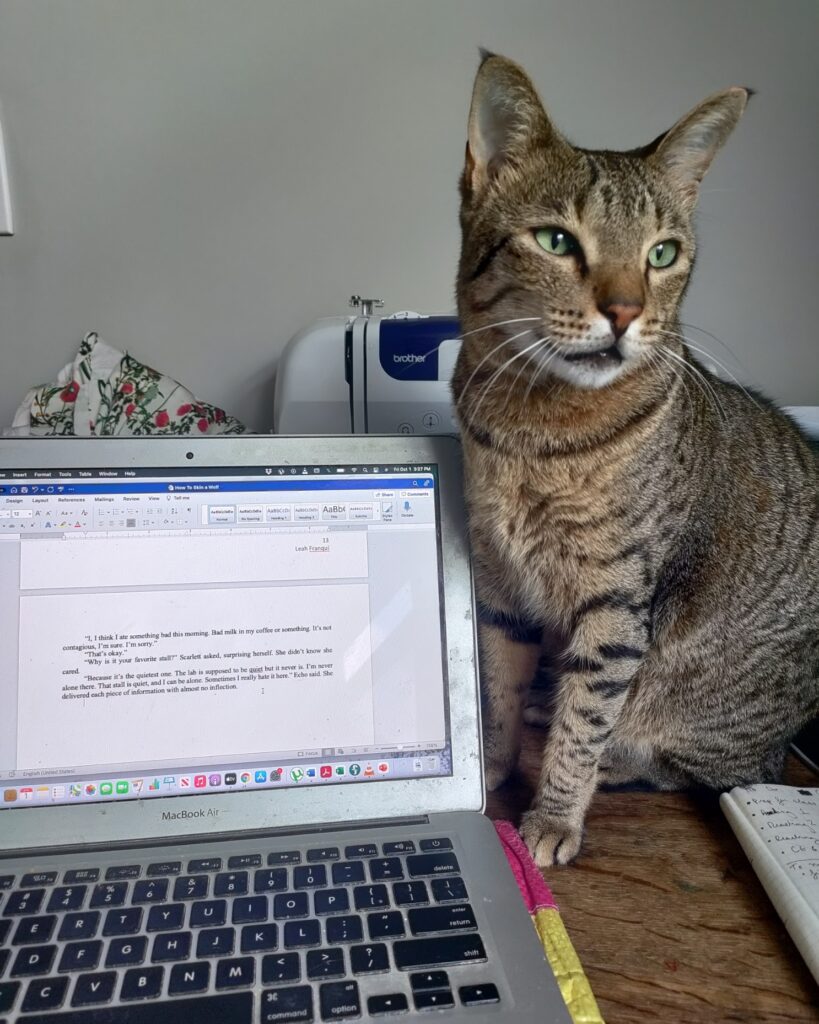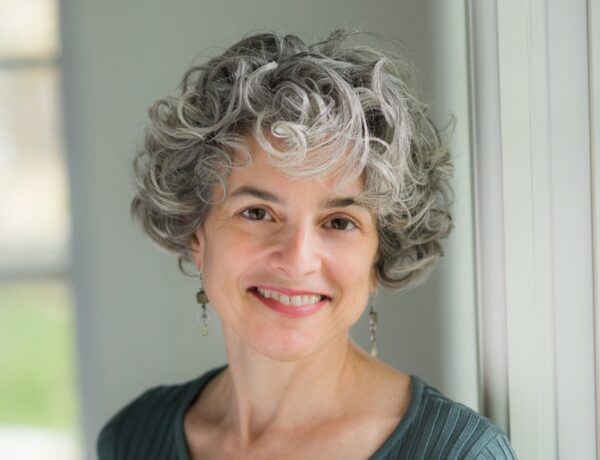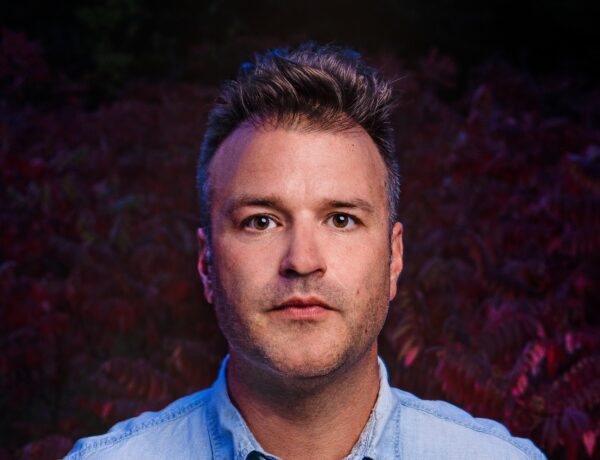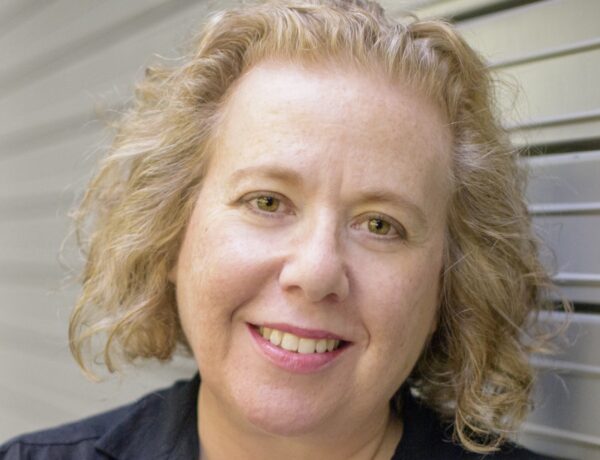Leah Franqui is a proud Philadelphian, and believes the city is far more than just cheese steaks. She graduated from Yale University in 2009 with an intellectually useful and financially useless degree in Theater Studies.
She traveled for a year trying to find herself, working on a farm in southern Spain, going on a Rubens fangirl trip to Belgium, and entertaining fellow train passengers in China. Returning to Philadelphia, she started working in non-profit theater to support her work as a playwright. In 2012 she left Philadelphia again, this time for Brooklyn, to attend graduate school at NYU-Tisch, where she received her masters in Dramatic Writing in 2014. In 2015 Leah moved to Mumbai, where she spent six years.
Leah has written seven full-length plays, one of which was performed in August of 2015 in New York and another of which received the 2013 Goldberg Play-writing award. Her work also includes four full-length screenplays, one of which was awarded the 2013 Alfred Sloan Foundation Screenwriting award, and a web series, and a myriad of articles for blogs and online publications.
Each week, we publish a new daily writing routine from a famous author. Subscribe to our newsletter so you don’t miss out!
Hi Leah Franqui, great to have you here with us today. For those who may not know, can you please tell us a little bit about yourself?
My name is Leah Franqui and I’ve been writing most of my life, although I started writing novels in 2014 after I graduated from NYU. My masters at NYU is actually in dramatic writing, not fiction, and it’s sort of funny that I had spent all this time training as a playwright and ended up diving into a novel, but at the time I had an idea that I wanted to explore in fiction and that ended up leading me down a path of novel writing, so you just never know what is going to happen or how you will stumble across your calling.
I’m originally from Philadelphia, and I went to Yale University for college and ended up traveling for a year afterwards and then working in non-profit theater in different roles, all writing based, before I moved to New York in 2012 to attend Tisch at NYU.
I’ve always loved stories, and fiction, but most of my background has been in theater which has really informed my sense of conflict and dialogue in my fiction work. Additionally, my mixed cultural background has long been a source of inspiration in all my writing, and more recently, my marriage to someone of another cultural background beyond my own also contributed to my sense of narrative and obsession with communication and cultural differences.
While I am no longer with my ex-husband, we lived in India together for six years, during which I finished and published my first and second novels, America for Beginners and Mother Land, respectively. Both of these novels were published by William Morrow, and my newest novel, After the Hurricane, will also be published by the same publisher in August of 2022.
I’m currently pursuing my PhD at Georgia State University in Atlanta, and exploring this new city and program while experiencing a new culture, the regionalism of the American South.
Do you remember the moment you realized you wanted to become a writer?
I don’t think there was a specific moment that was like, oh, okay, this is what I want to do. I’ve loved writing as long as I can remember, and it’s always been something I knew I enjoyed and wanted to be doing.
However, I would say college was the first time I started writing plays in a more structured way, that is, that’s when I took my first writing class, a playwriting class, and perhaps that class was the moment when I went from feeling like I loved writing to feeling like this was what I wanted to try and do for a living.
Almost every job I’ve had from the age of 21 on has involved writing in some capacity, so I think between starting to write plays more seriously around that age and seeing that these skills could be useful in other sectors, that was probably the time I knew writing would be a vital and important part of my life.
I think around the time I was writing my second novel I had the realization that novels were going to be the center of my writing, that is, I still write drama, but novels became the primary expression of my writing around that time.
Can you take us through the creative process behind your upcoming book, After The Hurricane?
This is a deeply personal novel and as such the creative process of this book reflects a lot of my personal list and history. My father’s family is from Puerto Rico, and a lot of this novel is based on my father and his life and my experience growing up with him.
Therefore, as part of my writing process for this novel, I conducted interviews with him about his family and his childhood, and we also took a road trip together in Puerto Rico to his parents’ hometown.
Despite having spent my life visiting the island, I had never been to their birthplace, San Sebastian, and this trip with my father was a fascinating experience that directly contributed to how I envisioned and wrote this story. Otherwise, this novel followed the lines of my earlier work.
As a writer, I tend to think about ideas for several years before I’m ready to start forming a story around the idea. Sort of percolating in the back of my mind, as it were. I thought about this story for many years before I started writing it, and then when I was ready to write, I worked on a first draft quickly, which is my usual method, getting a messy draft on paper in a few months.
I like to take breaks from my drafts so I have more distance from them and can see the issues more clearly, so time away from this story and the feedback from some trusted people lead me to radically reframe this novel, creating two oppositional timelines when earlier drafts had a different structure.
I’m a big fan of radical change, of big edits, of throwing away a lot of what I’ve written, and this novel is no different. I write many drafts, and I draft quickly, and take time between each one, rather than taking a long time on a single draft. I love writers who do that, it just isn’t the way I tend to write or think.
I like to make a lot of decisions and then see how they work as a whole all together. I’m happy to throw out a lot of things, and I write quickly and happily, with the knowledge that a lot of it might not make it to the next draft, but that it was important and necessary to get me to the most important or best story movie, line, or moment.

What does a typical writing day look like for you?
I tend to write the same way most of the time, because it works, and I guess like a baseball player I’m kind of superstitious. But also, I’ve been writing this way for a decade, and I have yet to get over this, so it must be the right way for me! I tend to treat writing days as pretty sacred.
When I first started writing fiction, I very rarely had a whole day to write. I wrote my first novel in like, two-hour chunks in between endless gigs I was doing in New York to “keep myself free to write” which didn’t make me enough money to live so I took on more and more of them and, therefore, never actually had any time to write!
However, once I found some jobs that paid me enough to live on without needing me to work constantly, I started nailing down the routine I still use today. On my writing days, which I usually get three or four of a week, I work out in the morning, and then sit down to write, and I give myself a time I have to end by.
I don’t write at night, it just doesn’t work for me, and I like to treat writing like an office job, sort of, I sit, I do it, I have to hit my word count goal which is always 2000 words, and then if I go beyond that, fantastic, some days I can write 4000, 5000 words.
Some days I barely make that 2000-word count goal, but I have to make it before I can stop. That is usually my writing day process. I’m pretty hard on myself about my word count, but not the content. That is, I don’t just write nonsense, but I write with the knowledge that anything I put down on the page can and will change.
For me, it’s always about moving forward, getting a story down on paper. I have a much easier time after I finish my first draft. That’s usually the time I finally figure out whatever the hell I’m trying to say, and then I can go back and say it better. And revising looks like writing, I have to get through a certain number of pages, or a certain section, each day. I’m a pretty goal-oriented thinker, and these constraints keep me motivated in the long marathon that is novel writing.
Whenever you hit a roadblock during a writing session, what are some of the methods you use to get back into the flow of things?
I really love the thing Jose Rivera lines from his 36 assumptions about playwriting about writer’s block, which is:
Embrace your writer’s block. It’s nature’s way of saving trees and your reputation. Listen to it and try to understand its source. Often, writer’s block happens to you because somewhere in your work you’ve lied to yourself and your subconscious won’t let you go any further until you’ve gone back, erased the lie, stated the truth and started over.
Jose Rivera’s 36 Assumptions About Playwriting
This is a very intricate statement, but I find there is a truth to it for me, that when I hit blocks, it is because I’ve written something that isn’t working and I don’t know how to go on from there. I’ve written myself into a corner, I’ve made a circumstance I can’t move on from, and I need to go back and untangle that to move on.
So one of my best methods is that, take a day away from writing and then go back and read through what I’ve made so far and try hard to examine it for fault lines, that is, is there something I wrote carelessly, something that doesn’t fit the character in my mind, something that is clearly off or a thing I tried that just doesn’t live in this story?
Rooting out those things, which are usually the result of my trying to be fancy or do something I’ve seen in someone else’s work that was gorgeous for them and not for me, or something that just isn’t my authentic self, for lack of a better term, is my best way of crumbling my writer’s block.
Writing is like knitting, I think, in that you can’t see the mistake until a few rows after you’ve made it, and you sort of have to unravel, fix the problem, and go from there. At least, that’s been my experience! But I also think that sometimes when I just can’t see my story clearly my best strategy is to go out and be in the world, sit in a park or a bar and watch people, go out and see friends, forget about my imaginary world for a while until the real world unlocks something in my story.
Taking a step back from a story isn’t being a quitter, it’s just a pause that lets you see more clearly. When I’m writing I’m very saturated in my story, which is wonderful, but it also limits my vision. Sometimes you just need a different vantage point to see the problem clearly.
What does your writing workspace look like?
My writing space isn’t anything fancy! I usually write at my desk, which also houses my sewing machine and, usually, my cat. The desk was my brother’s childhood desk, actually, and I usually sit in a chair which is a restored Windsor chair I had Bill Russell, a woodworker and arts in Philadelphia, restore for me.
Sometimes I write on my couch, too. I can pretty much write anywhere, honestly, which comes in handy sometimes, especially when I had roommates, but now the only person getting between me and writing is my cat.

Before you go…
Each week, we spend hours upon hours researching and writing about famous authors and their daily writing routines. It’s a lot of work, but we do it out of our love for books and learning about these authors’ creative process, and we certainly don’t expect anything in return. However, if you’re enjoying these profiles each week, and would like to send something our way, feel free to buy us a coffee!



1 Comment
Angel Luis Franqui
January 1, 2024 at 14:46Am very impressed with and proud of my daughter’s writing style and determination in publishing excellent novels and plays, a talent i lack. She probably inherited her artistic writing skills and grit from her dynamo mom, who has written 3 mysteries.
I look forward to more of her creative word play. GO Leah.